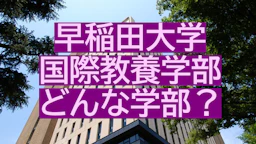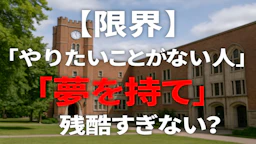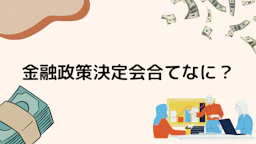Interview with Dr. Matthias Schlegl
〜Dr. Matthias Schlegl (Major: macroeconomics, international finance) 〜
大学に進学しようとする人にとって避けられないのが学部選び!そこで、今回は経済学部の教授であるマティアス・シュレーグル教授に経済学とはどういった学問なのか、大学進学の際に重要なことなど、学部選びに役に立つことをお聞きしてきました。また、ドイツの名門ミュンヘン大学での大学生活、さらにオックスフォード大学やカリフォルニア大学バークレー校でのリアルな体験についてもお聞きしてきました。経済学部に興味がある方、留学に興味がある方必見の記事となっています!
(今回の記事は英語での記事となっています。)
Contents
Part 1 "Fascination with Economics"
- Differences between Microeconomics and Macroeconomics
- What is International Finance?
- Attractive points with Macroeconomics and International Finance
Part 2 "Japan's Lost Decade"
- Current Research
- Bank of Japan's monetary policy
Part 3 "Reality of Foreign Universities"
- Differences between Japanese and German Universities
- Common characteristics of students at high-level universities
Part 4 "Don't be afraid and Don't be shy"
- Messages to high school students and university students
(Interview Date: July 28th, 2022)
Current Research
What kind of research are you doing right now?
Dr. Schlegl: In macroeconomics, the question I’m most interested in is Japanese economic performance over the last 30 years. As I said before, Japan is different from many other countries. Japanese economic growth was very high in the 1970~80. When I was a student, one of the questions in the textbook asked us to calculate when Japan’s economy would be bigger than the United States. Because when we look at the past 30 years, Japan's economic growth was higher than America's. So, we should calculate when it takes over America’s economic size. But in the next 30 years, Japan stopped growing and stagnated. This is a very unique transformation, an economy that is growing so fast very suddenly stops growing, and prices decline. And even after 30 years there is no improvement. That's a very unique economic development.

(Japan GDP growth rate(%), 1970~2020, Data souce: World bank)
But suddenly, we faced similar troubles in Europe after 2008. Europe and to some extent America, suddenly stopped growing and had very low inflation for a long time even though the central bank tried to stimulate the economy.
So, my motivation when I was a Ph.D. student was what can we learn from Japan about this situation for Europe and America. So, I decided to study from the theoretical perspective how we can understand Japan's situation: Why does such a long period of economic stagnation occur and how can we solve this issue.
My research in macroeconomics focuses on “secular stagnation”, which is the idea that an economy like Japan is trapped in a situation of low economic growth and low inflation. This is kind of my biggest interest in macroeconomics. There are many aspects to this situation.
In one of our projects, we look at is the effect of the burst of credit booms. Japan's stagnation starts after the bubble economy. So, we develop models that show asset boom can push economic growth but if this asset boom collapses, and the economy suffers from too much debt and stagnation starts.
In another research project, we look at the labor market situation. Because when we think about Japan, the Japanese economy is stagnating, but the unemployment rate is very low. I think in 2000 Japan's unemployment rate peaked at 5.5 percent. But 5.5 percent is extremely low compared to other countries. This seems to be a paradox. On the one hand, Japan's economy is stagnating, on the other hand the unemployment rate is quite low. Now it's only less than 3% in 2020.

(unemployment rate in Japan, 1970~2020, Data source: world bank)
When we look at the Japanese labour market, the unemployment rate is very low but there is something we called underemployment. There are many people who are doing the job that they don't like to do. They are doing an irregular job like a non-permanent job. There are a lot of part-time workers. In surveys among part-time workers, many of them say: "We don't want to work part-time. We want to work full time, but we cannot find a full-time job". So, these people are employed but they are trapped in low paying part-time jobs. Many of them don't want such a job but because of the bad economic situation, they can't find a full-time job. Our research shows that in countries like America or Europe, when the economies are weak this usually results in a big increase in unemployment. However, in Japan, people are still employed but the quality of the job that they do is very low. It is usually part-time or irregular.
(Data source: Part-time employment rate (in percent of total employment), OECD, Japan (solid) and OECD average (dotted line) Link: https://www.iser.osaka-u.ac.jp/library/dp/2020/DP1088.pdf)
Another project is about inequality. We look at how economic stagnation in Japan affects the income distribution and the wealth distribution. Does society become more or less equal in this situation?

Wow, that's interesting. Personally, I found it interesting that you focus on Japan's employment rate and the employment rate of part-time worker. Is there another research?
Dr. Schlegl: I am also researching government defaults. Let’s take Argentina as an example. Argentina’s government borrows funds from many different creditors. Maybe Argentina borrows money from another country, like the US government or China. But they also borrow by issuing bonds to private creditor or borrow via loans from banks. There are many different creditors from which Argentina borrows.
Now, suppose the Argentinan government defaults on its debt and cannot repay. The question is " do they treat these groups equally" or "do they favor some group"? Argentina might say "we only default on the bond, but we still repay the US government" or they could say "we don't pay anyone". So, Argentina’s government can make a decision on how to treat different creditor groups when they default. We have a data set from the World Bank which covers hundredfifty countries over 30~40 years. Using this data, we can analyze this question. In case of default, how do country treat different groups. Do they favor banks, bonds, or governments? In other word, the question is: "Is there some seniority structure in the international financial system?".

Bank of Japan's monetary policy
Currently, the Bank of Japan continues to ease monetary policy, right? On the other hand, the U.S. and Europe are tightening monetary policy. Some say that the BOJ should tighten its monetary policy like the U.S. and Europe, while others say that the BOJ should continue to ease its monetary policy. What do you think about this?
Dr. Schlegl: From the US perspective, raising the interest rate makes a lot of sense. After the COVID-pandemic, both the US central bank and the US government did highly expansionary policies. The Federal Reserve started buying a lot of assets, did quantitative easing and kept interest rates low. The administration increased public spending, cut taxes, and gave a lot of corona-related subsidies to many households. This was a big boom in aggregate demand, and resulted in some overshooting. The economy was recovering extremely well, unemployment was low, and prices and wages started to increase. So, from their point of view, it makes sense to raise the interest rate because it can reduce inflation and they can prevent the economy from overheating. They can cool down the economy. So, there is no conflict.
I think Japan's current situation is a big chance. For the last 30 years, the BOJ has tried to create higher inflation and they always failed. Now, for the first time in 30 years, Japan's inflation is above 2.5%. So, inflation in Japan is rising but it's still at a low level. When you just look at domestic inflation, which means that you forget about energy prices or food prices, it's extremely low. It's higher than in the past but still too low. So, I think from the BOJ perspective, the current situation is a big, maybe unique, chance for Japan to leave this deflationary environment of the last 30 years. What the BOJ wants to achieve in the long run is an inflation rate of 2%. But to achieve this, you need to increase people's inflation expectations. Because of deflation over the past decades, I think the public still expects low inflation in the future, which is why they don't ask for higher wages. But for the economy to grow, wages in Japan need to raise. People need to ask for higher wages in Japan. One way this could work at the moment is if there is some overshooting like in Europe and the United States that results in higher long-run inflation expectations.
The United States had similar problems as Japan over the last 10 years. But now, by allowing inflation to be so high, the FED might have managed to solve this deflationary problem. As inflation expectations increased, people start to ask for higher wages, and the economy starts growing on a sustainable pass. By waiting for so long, the FED (and to some extent the ECB) has managed to overcome stagnation. I think Japan has a similar chance. The BOJ does not need to worry because inflation is still very low, particularly domestic inflation. They should continue their loose policy until they see the increase in core inflation, domestically generated inflation that is resulting from higher wages. I think it is a unique chance to exit from the last 30 years of stagnation.
So, the BOJ should not tighten its monetary policy because there is no increase in core inflation. The BOJ should continue its expansionary monetary policy to exit from a deflationary economy until we see an increase of core inflation.
いかがでしたか?Part 2ではマティアス・シュレーグル教授の研究内容や日銀の政策についての意見をお聞きしました。大学のマクロ経済学の授業では長期停滞論(secular stagnation)に関する勉強などもしたりします。もし、興味を持ったらぜひ大学でも勉強してみてください!
次回のPart 3ではドイツの名門ミュンヘン大学で博士号を取得したマティアス・シュレーグル教授だからこそ語れる、海外大学の特徴をお伝えしていくのでぜひ読んでみてください!
関連記事
また、この記事も掲載されているokkeという勉強の大きな味方になってくれるアプリの方もぜひダウンロードよろしくお願いします!
- iOSの方はこちら:https://apple.co/3IKMN8x
- Androidの方はこちら:https://play.google.com/store/apps/details?id=com.spesden.okke
最後まで読んでいただきありがとうございます!























